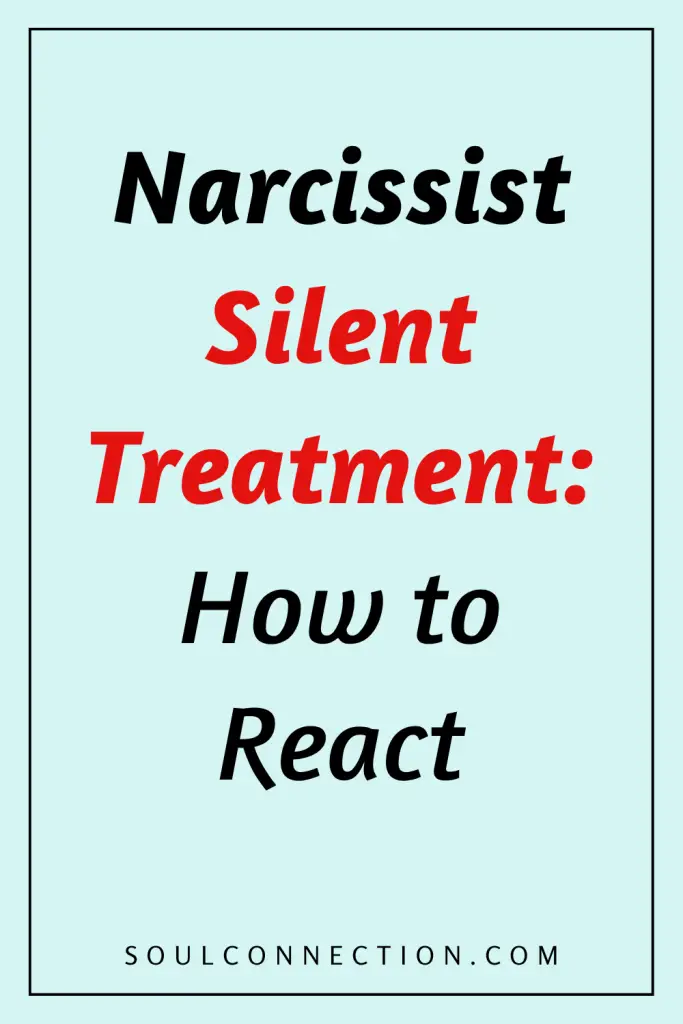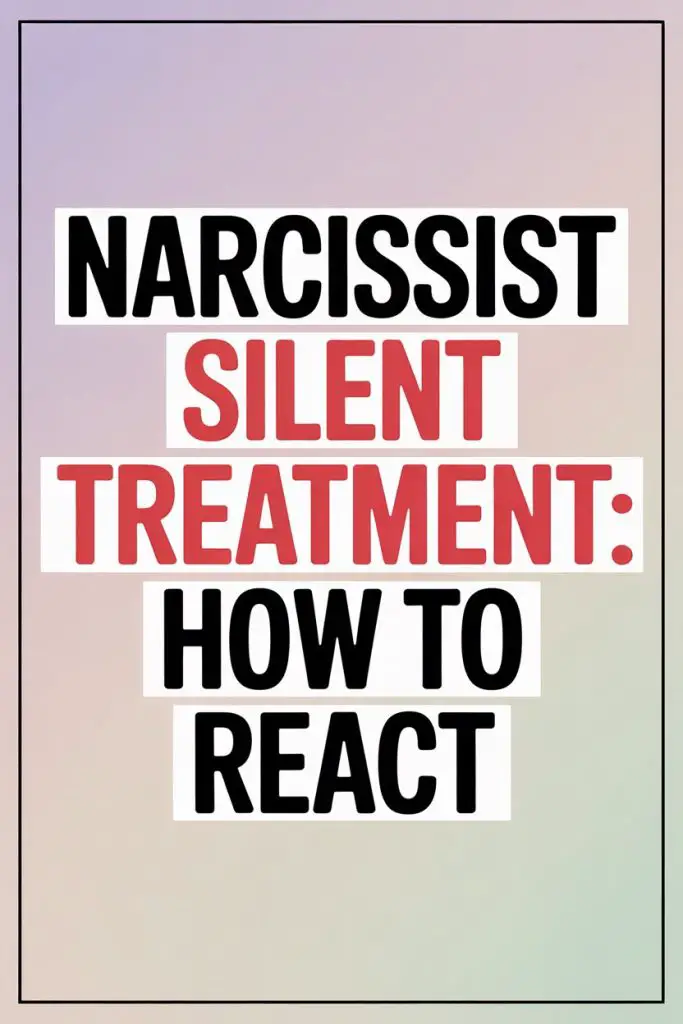You know that feeling when your partner walks past you like you’re an inconvenient potted plant? The silent treatment—classic, right?
Now, mix in a hint of grandiosity, a dash of ego, and a penchant for emotional power plays, and you’ve got the narcissist’s version. It’s not just silence; it’s a production, and you’re cast as the confused supporting actor.
Curious how to keep your sanity and respond with style (and maybe a little dignity) when faced with the cold shoulder from someone who loves holding all the cards?
Here’s your roadmap for handling narcissist silent treatment without losing yourself in the process.
Recognizing Narcissist Silent Treatment
The regular silent treatment is frustrating enough. When it’s coming from a narcissist, it goes beyond a simple sulk or cooling-off period.
This is not about needing space after a disagreement or giving both parties a breather. This is about punishment, control, and keeping you off-balance.
You’ll notice the difference. Narcissistic silent treatment isn’t random. It’s strategic—a carefully timed withdrawal designed to make you squirm, question yourself, and chase after their approval.
Suddenly, you’re texting, apologizing, wondering what you did, and they’re eating popcorn, enjoying every minute of your confusion.
Why Narcissists Use the Silent Treatment
For the narcissist, silence isn’t golden—it’s pure power. By ignoring you, they get to:
- Assert dominance in the relationship
- Punish you for not meeting their needs or challenging their ego
- Avoid responsibility for their actions
- Make you feel unworthy or anxious, so you seek their validation
It’s emotional cherry-picking: they get to feast on your discomfort while offering nothing in return. Pretty exhausting, right?
The Emotional Toll It Takes
If you’ve ever found yourself pacing the kitchen, replaying conversations, or apologizing for things you didn’t do, congratulations: you’re human. This kind of silent treatment messes with your head and heart.
Anxiety, self-doubt, and even guilt creep in. Suddenly, you’re questioning your own reality.
It wears you down over time, chipping away at your self-worth. The longer it goes on, the more desperate you may feel to “fix” things—even if you weren’t the one who broke them. That’s the trap.
What Not to Do When the Silence Hits
Tempting as it is to bombard them with texts, beg for a response, or put on a one-person performance of heartfelt apologies, resist the urge. Here’s what won’t help:
- Over-explaining your side of things
- Repeatedly apologizing when you don’t know what you did
- Begging for attention or affection
- Recruiting mutual friends to act as mediators
Giving in to these impulses may offer a moment’s relief, but you’re playing a losing game. The more you jump through hoops, the more the narcissist learns they can control you with silence. Don’t hand them the remote.
Set Clear and Healthy Boundaries
Now for the grown-up stuff. Boundaries don’t mean slamming doors and refusing to talk ever again. It’s about protecting your emotional space and making it clear that manipulative silence won’t fly.
Try saying (calmly and without drama), “I notice you’re not speaking to me. If you’d like to talk when you’re ready, I’m here. Until then, I’ll be giving us both some space.”
That’s it. You set the terms, you step away, and you let them stew in their own juice for a while. You’re not responsible for coaxing them out—if they want a conversation, they know where to find you.
Refuse to Chase or Beg
Here’s where you practice the fine art of not taking the bait. When a narcissist goes silent, the unspoken invitation is: “Come find me, prove your devotion.” Decline that invitation with grace.
Resist the itch to send a string of “Are you okay?” messages. Do not apologize for existing. Channel your inner zen master, even if your insides are a mess.
You’re showing them that their silence isn’t a magic wand that makes you dance.
Focus On Self-Care and Support
While they’re off starring in their own drama, you have more important things to do. Take care of yourself.
Go get some fresh air, call a friend who makes you laugh, or finally sort out that sock drawer (it’s time).
Isolation is a classic outcome of narcissistic silent treatment. Fight back by staying connected to people who make you feel seen and loved.
You deserve a support squad, not a one-person audience for their power games.
Reclaim Your Narrative
Gaslighting often rides shotgun with the silent treatment. When you’re left alone with your thoughts, it’s easy to start doubting your memories, your feelings, even your value.
Write things down. Keep a journal or a note on your phone about what happened before the silence started, how you felt, and what you know to be true.
This isn’t just for posterity—it’s a reminder that you’re not losing your mind, even if you’re being told otherwise.
Communicate Your Needs—Clearly and Without Drama
Once the silence eventually breaks (and it always does), avoid jumping straight into a game of “guess what you did wrong.” Instead, calmly express how the silent treatment affects you.
No accusations, no raised voices—just the facts.
Try: “When you stop speaking to me, I feel shut out and anxious. I want us to talk about problems, not ignore them.” How they respond will tell you a lot about their willingness to grow—or not.
Know When to Walk Away
You can make your needs known, set boundaries, and manage your own responses, but you can’t control someone else’s behavior.
If the silent treatment becomes a predictable pattern, and you find yourself more anxious than happy, it may be time to ask yourself some hard questions.
No relationship should feel like surviving a never-ending audition. If you’re always waiting for the next cold shoulder, or if your partner punishes you more often than they comfort you, your well-being has to come first.
Silence Isn’t Golden—But Your Peace Is
Surviving the narcissist silent treatment is a lot like surviving a surprise arctic blast—unpleasant, chilly, and best weathered in warm company (even if that company is just your own excellent self).
Draw your boundaries, protect your sanity, and don’t let someone else’s silence define your worth. There are far better ways to spend your time than decoding the moods of someone who enjoys keeping you in the cold.
You deserve better than a one-sided conversation with someone who won’t pick up the phone—let alone their own emotional mess.


